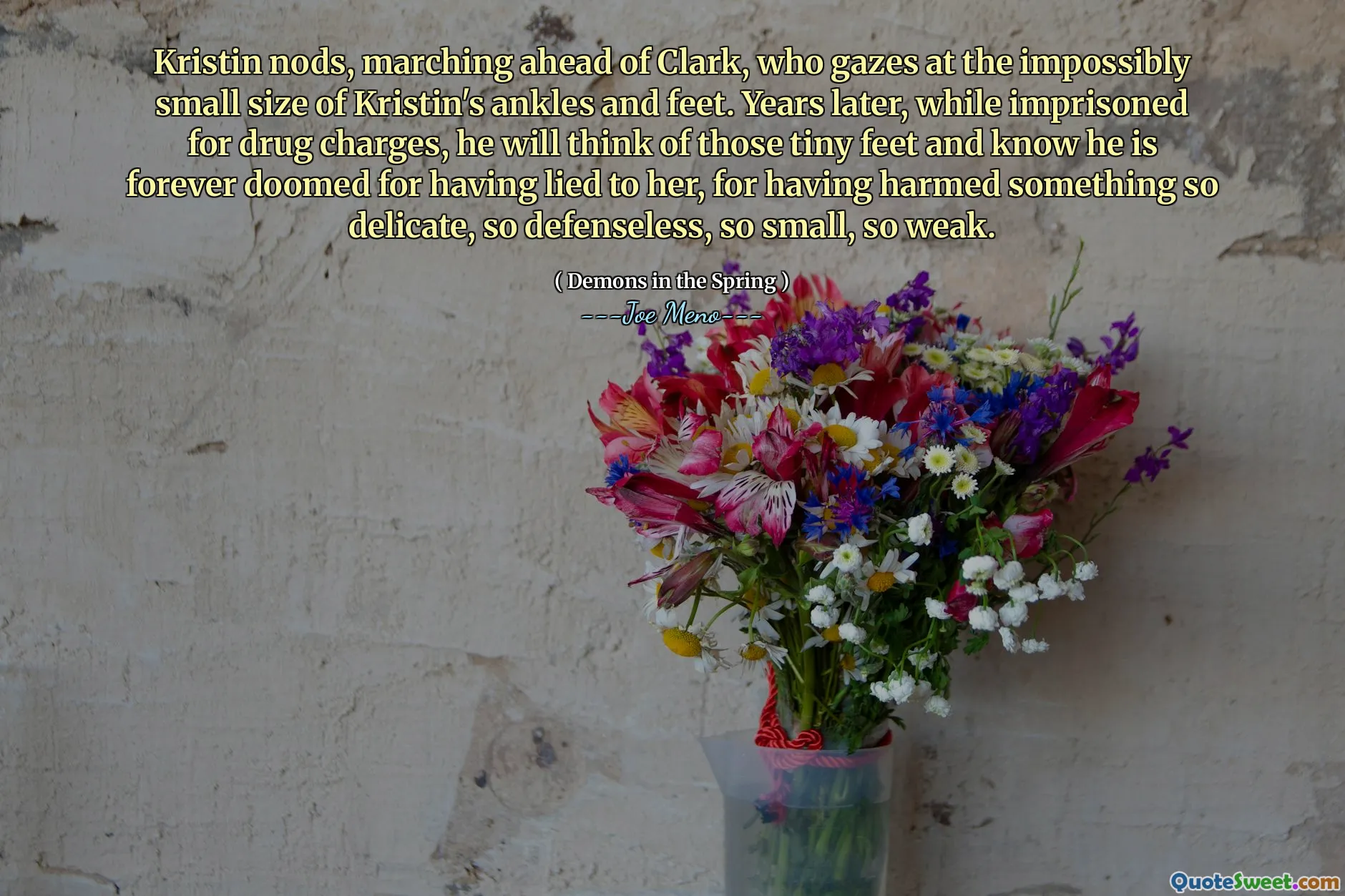
Kristin nods, marching ahead of Clark, who gazes at the impossibly small size of Kristin's ankles and feet. Years later, while imprisoned for drug charges, he will think of those tiny feet and know he is forever doomed for having lied to her, for having harmed something so delicate, so defenseless, so small, so weak.
This excerpt vividly captures a moment of quiet dominance and vulnerability intertwined through the imagery of Kristin's small feet. The act of Kristin marching ahead signifies confidence and perhaps an independent spirit, while Clark's gaze reveals admiration, perhaps tinged with guilt. The mention of her tiny ankles and feet evokes a sense of fragility and innocence—a contrast to the hardships Clark will face later in life. The reflection years afterward underscores a profound sense of remorse and regret; those small, delicate feet symbolize innocence lost and the consequences of betrayal. It prompts us to consider how trivial acts—or lies—can have lasting, detrimental impacts on others, especially when it involves harm to something seemingly insignificant yet precious. The metaphor of delicate, defenseless parts of a person often signifies our vulnerabilities, and the betrayal of such vulnerabilities intensifies the emotional gravity of guilt. It also speaks to the impermanence and fragility of innocence and trust. Clark’s remorse intensifies with the realization that he harmed someone so defenseless, highlighting themes of guilt and remorse that echo long after the original act. Overall, this imagery grounded in the smallness of Kristin’s feet serves as a powerful reminder of how easily we can underestimate vulnerability and how profoundly we might be haunted by our betrayal of innocence, leading to regret and a loss of moral integrity.






